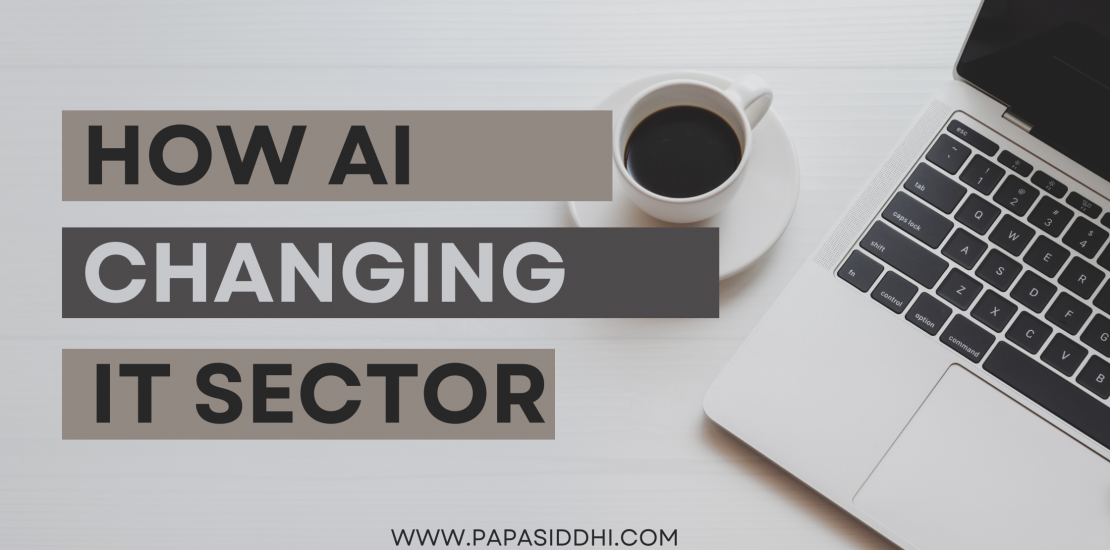- July 19, 2024
- Posted by: papasiddhi
- Category: Artificial Intelligence

Artificial Intelligence (AI) has emerged as the defining force shaping the future across various industries. It has not only supplanted traditional computing methods but has also fundamentally altered how industries operate. From revolutionising healthcare and finance to enhancing research and manufacturing capabilities, AI’s impact has been swift and profound.
In the realm of Information Technology (IT), AI has ushered in a new era of efficiency and innovation. Given IT’s focus on computers, software, and data transmission, AI plays a crucial role in transforming these domains.
At its core, AI is a branch of computer science dedicated to creating intelligent machines capable of mimicking human cognitive functions. Through sophisticated algorithms and machine learning, AI enables the development of expert systems that exhibit intelligent behavior, solve complex problems, and simulate human-like intelligence in machines.
Enhancing Security Systems: Data security stands paramount in safeguarding confidential information held by both governmental and private organizations. AI leverages advanced algorithms to establish robust, multi-layered security systems. It identifies potential threats and vulnerabilities, offering proactive solutions to mitigate risks and ensure data integrity.
Boosting Productivity: AI algorithms empower developers by streamlining coding processes and enhancing software quality. AI-driven tools provide coding suggestions that optimize efficiency, increase productivity, and deliver clean, error-free code. This capability reduces downtime during software production, thereby accelerating development cycles.
Automating Operations: AI’s automation prowess extends to automating backend processes through deep learning applications. This automation reduces operational costs, minimizes human intervention, and enhances process efficiency over time as AI algorithms learn and adapt from experience.
Facilitating Application Deployment: During software deployment, AI predicts and preemptively addresses potential issues in versioning and performance. By identifying and resolving issues early in the development lifecycle, AI ensures smoother application performance without delays or disruptions.
Improving Quality Assurance: AI tools play a crucial role in quality assurance by automatically detecting and fixing software bugs throughout the development cycle. Tools like “Bugspots” effectively eliminate bugs and vulnerabilities, ensuring robust software performance and reliability.
Optimising Server Performance: In managing high-volume server requests, AI-driven optimisations enhance server responsiveness and reliability. AI as a service optimizes server operations, improving customer service delivery and operational efficiency.
Empowering Developers: AI has empowered developers to innovate across software development, architectural planning, and quality assurance. Automation in application development has significantly accelerated development cycles, making AI indispensable to modern IT operations.
In conclusion, AI’s integration into the IT sector has not only revolutionised operational efficiencies but also expanded the horizons of what developers can achieve. As AI continues to evolve, its transformative impact on IT will only deepen, driving further advancements and efficiencies across the industry.
Leave a Reply
You must be logged in to post a comment.
